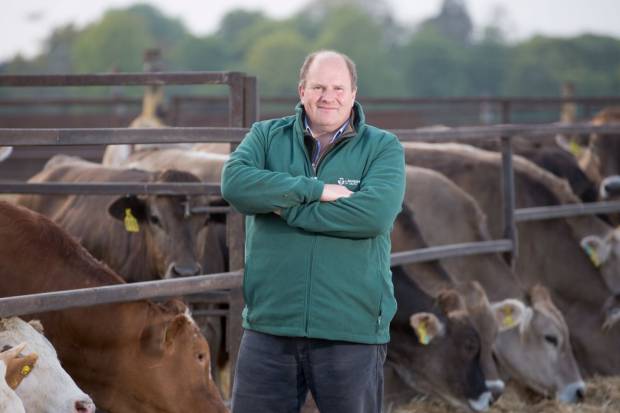UK beef production standards should be recognised at the point of sale, urges NBA
7th February 2020
Region: National

Traceability and nutritional values must be clear to consumers
The high beef production standards demonstrated by UK producers must be recognised, maintained and matched by any imported beef products, demands the National Beef Association (NBA), in the wake of concerning developments since the start of the year.
Following the reintroduction of the Agriculture Bill into Parliament in January, amidst calls to recognise the need to encourage the production of food in the UK in an environmentally sustainable way, the NBA is asking for even greater traceability and nutritional values to be demonstrated at the point of sale.
“During the month of January alone, we have seen the arrival of many new ‘no-meat’ product ranges, with misleading labelling and little reflection of equivalent nutritional values,” explains NBA chairman Andrew Laughton.
“We see the example across the Channel, led by French producers, whereby non-meat-based products must clearly be identified and labelled as such. This faux-meat branding ban means producers using terms such as ‘steak’, ‘sausage’ or ‘burger’ for food free of animal products will face hefty fines, yet we are seeing major high-street food retailers in the UK bringing out more ranges such as ‘vegan-steak bakes’,” he adds.
“The Greggs vegan steak bake, for example, is made using Quorn pieces, which are actually made from a fungus, thus making the claim of a ‘steak bake’ spurious at best, and I would suggest that most consumers are unaware that it is effectively derived from a mould,” continues Mr Laughton. “To me, this smacks of a whole movement piggybacking on the ethical, traceable and trusted food source provided by the UK beef industry, and undermines the nutritional values of red meat.”
The NBA believes that stronger measures should be enforced for labelling and branding of products, as UK beef farmers continue to provide safe, traceable and nutritious food, produced to the highest standards of animal welfare, environment protection and food safety in the world.
“We could also point to carbon footprint labelling,” adds Mr Laughton. “With Boris Johnson welcoming beef imports from Uganda in a post-Brexit pledge to Ugandan farmers, it is crucial we focus on the environmental contribution and welfare standards of home-produced beef products.
“We also see the environmental impact in the production of certain faux-meat food products, but where is this demonstrated on the shop shelves?” he asks.
Clearer labelling of product content and source of origin will help provide consumers with the information to make an informed choice on the foods they purchase, based on nutritional values and traceability.

